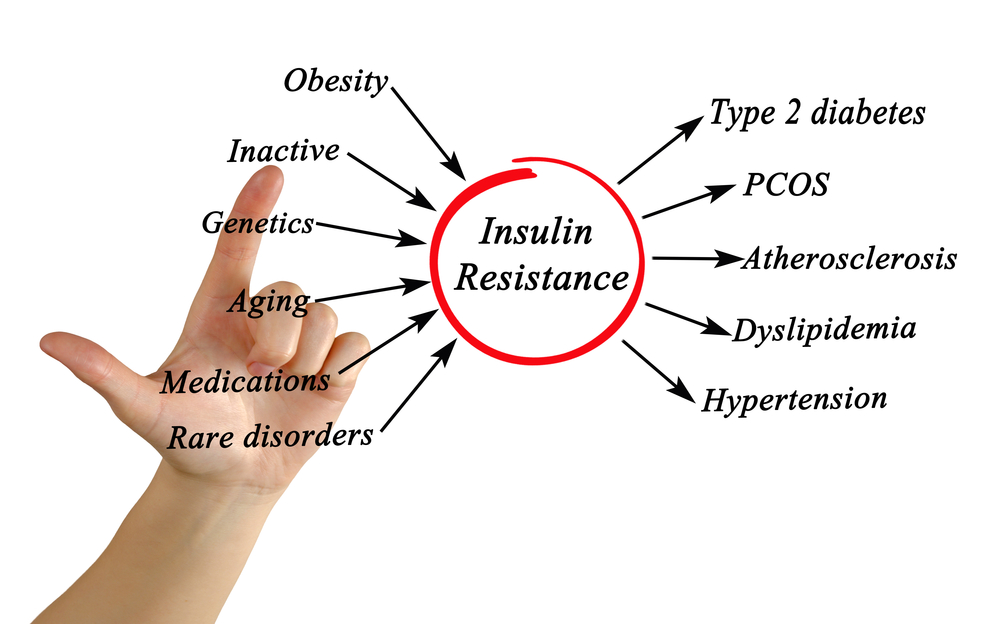Exploring the Link Between Vitamin D and Insulin Resistance in PCOS
Polycystic ovary syndrome (PCOS) is a common hormonal disorder that affects millions of women worldwide. One of the hallmark features of PCOS is insulin resistance, which can lead to various metabolic complications. In recent years, researchers have been uncovering a potential connection between Vitamin D and insulin resistance in PCOS. This blog post aims to delve into the relationship between these two factors and shed light on their implications for women dealing with PCOS.
Understanding PCOS and Insulin Resistance
PCOS is a complex hormonal disorder characterized by irregular menstrual cycles, ovarian cysts, and excess androgens (male hormones) in the body. Insulin resistance, a condition in which the body’s cells become less responsive to the effects of insulin, is often a key component of PCOS. When cells don’t respond properly to insulin, the pancreas produces more insulin to compensate, leading to elevated levels of insulin in the blood.
Insulin resistance not only disrupts the body’s blood sugar regulation but also contributes to weight gain and increased production of androgens. This, in turn, exacerbates PCOS symptoms and can lead to various health complications, including infertility, type 2 diabetes, and cardiovascular issues.
The Vitamin D Connection
Vitamin D, often referred to as the “sunshine vitamin,” plays a crucial role in maintaining bone health, immune function, and overall well-being. Recent research has suggested a potential link between Vitamin D deficiency and insulin resistance in PCOS. Some studies have found that women with PCOS tend to have lower levels of Vitamin D compared to those without the condition. This deficiency may be attributed to factors such as reduced exposure to sunlight, poor dietary intake, and impaired Vitamin D metabolism.
How Vitamin D Influences Insulin Sensitivity
Vitamin D is believed to influence insulin sensitivity through multiple mechanisms. One of the key ways is by promoting the expression of insulin receptors on cell surfaces, thereby enhancing the cells’ responsiveness to insulin. Additionally, Vitamin D may play a role in reducing chronic low-grade inflammation, which is often observed in PCOS and is linked to insulin resistance.
Research Findings
Several studies have explored the effects of Vitamin D supplementation on insulin resistance and other metabolic parameters in women with PCOS. While results have been somewhat mixed, there’s promising evidence to suggest that adequate Vitamin D levels could improve insulin sensitivity and reduce the risk of metabolic complications.
A review of these studies indicates that Vitamin D supplementation, when administered at appropriate doses, can lead to improvements in insulin sensitivity, menstrual regularity, and even modest weight loss in women with PCOS. However, further research is needed to establish optimal dosages, treatment durations, and the long-term effects of Vitamin D supplementation on PCOS management.
Practical Implications and Recommendations
For women with PCOS, addressing Vitamin D deficiency could be a potential strategy to help manage insulin resistance and its associated complications. Here are some practical recommendations:
- Consult a Healthcare Professional: If you suspect you have PCOS or are already diagnosed, consult a healthcare provider to assess your Vitamin D levels and discuss appropriate supplementation if needed.
- Sunlight Exposure: Aim for regular, safe sun exposure to help your body synthesize Vitamin D naturally. Spending 10-15 minutes outdoors a few times a week can be beneficial.
- Dietary Sources: Include Vitamin D-rich foods in your diet, such as fatty fish (salmon, mackerel), fortified dairy products, egg yolks, and mushrooms.
- Supplementation: If advised by a healthcare professional, consider taking Vitamin D supplements to achieve and maintain optimal levels. Remember that excessive supplementation can have adverse effects, so moderation is key.
The connection between Vitamin D and insulin resistance in PCOS offers an intriguing avenue for further research and potential therapeutic interventions. While the exact mechanisms and optimal dosages are still being explored, there’s growing evidence to suggest that maintaining adequate Vitamin D levels could contribute to better insulin sensitivity and overall management of PCOS. As always, it’s essential to work closely with healthcare professionals to tailor a comprehensive approach that addresses your unique needs and health goals.










